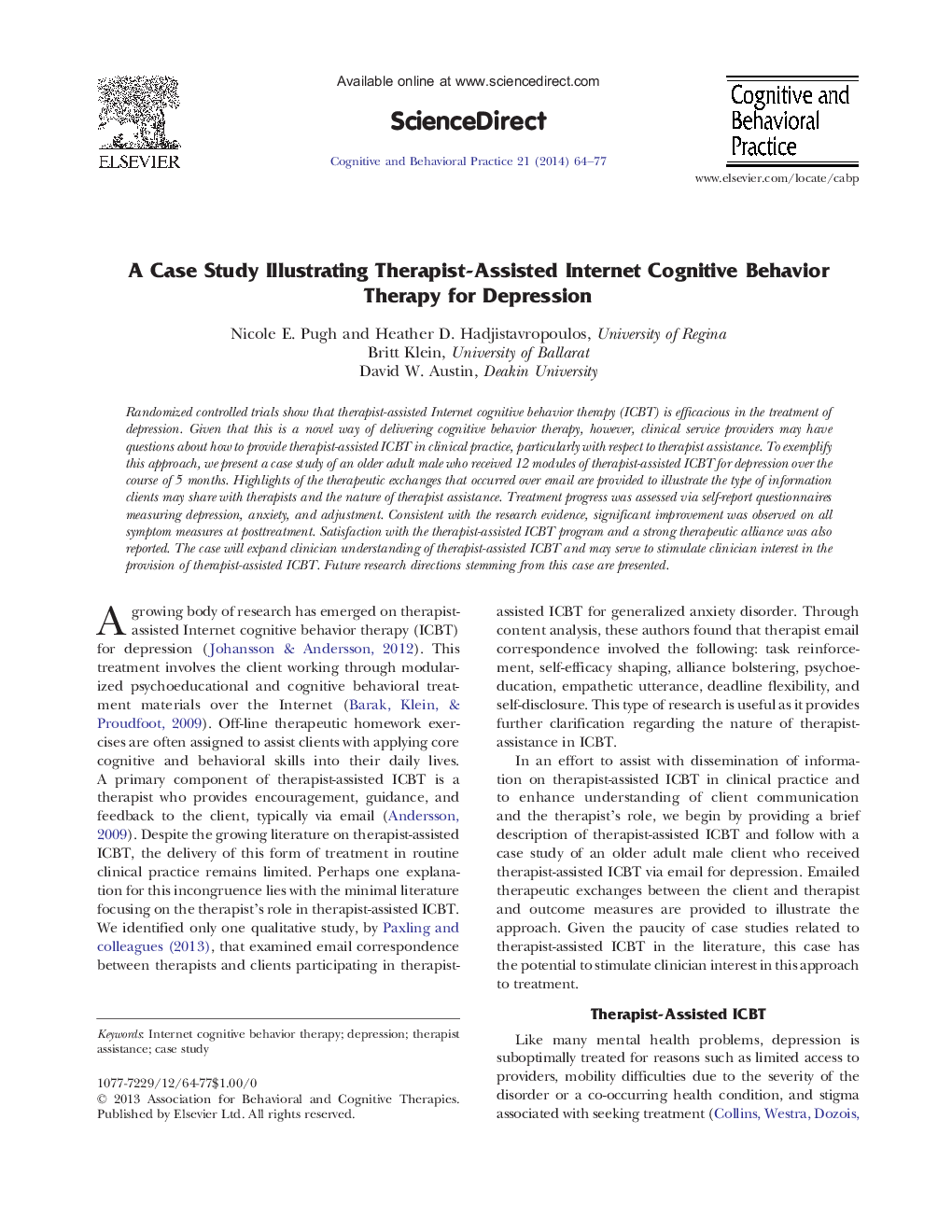| Article ID | Journal | Published Year | Pages | File Type |
|---|---|---|---|---|
| 904359 | Cognitive and Behavioral Practice | 2014 | 14 Pages |
•We present a case study using therapist-assisted ICBT for depression.•Emailed therapeutic exchanges between the client and therapist are illustrated.•Pre to post outcome measures suggest a significant reduction in symptoms.•Satisfaction with the therapist-assisted ICBT program and a strong therapeutic alliance were also reported.•We expect the case will expand clinician understanding and interest in therapist-assisted ICBT.
Randomized controlled trials show that therapist-assisted Internet cognitive behavior therapy (ICBT) is efficacious in the treatment of depression. Given that this is a novel way of delivering cognitive behavior therapy, however, clinical service providers may have questions about how to provide therapist-assisted ICBT in clinical practice, particularly with respect to therapist assistance. To exemplify this approach, we present a case study of an older adult male who received 12 modules of therapist-assisted ICBT for depression over the course of 5 months. Highlights of the therapeutic exchanges that occurred over email are provided to illustrate the type of information clients may share with therapists and the nature of therapist assistance. Treatment progress was assessed via self-report questionnaires measuring depression, anxiety, and adjustment. Consistent with the research evidence, significant improvement was observed on all symptom measures at posttreatment. Satisfaction with the therapist-assisted ICBT program and a strong therapeutic alliance was also reported. The case will expand clinician understanding of therapist-assisted ICBT and may serve to stimulate clinician interest in the provision of therapist-assisted ICBT. Future research directions stemming from this case are presented.
